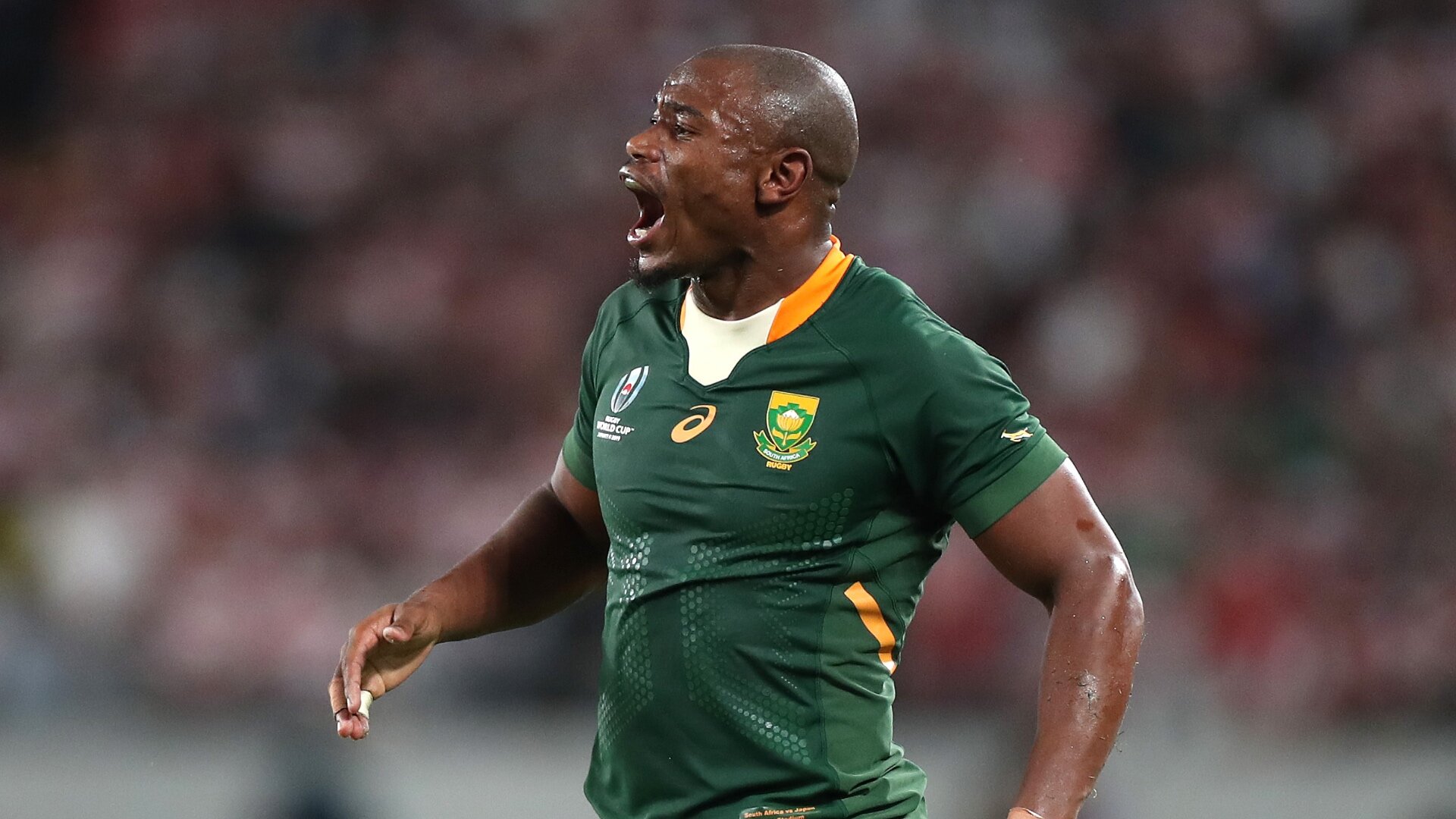Neil de Kock: Springboks have earned the right to play expansively

Having completed an unwanted hat-trick of defeats on their Australian tour against the All Blacks in Townsville, the Springboks’ game strategy is being mercilessly picked apart by eager armchair critics.
The critique is that the Boks are box kicking ad nauseam and it’s very tough to disagree with the notion that, without even looking to move the ball into space, the Springboks’ first thought was to kick against the All Blacks.
It’s evident that the Boks went into the game believing that they would garner a positive outcome from the box kick tactic. It happened once from an aerial bomb when S’bu Nkosi gathered the loose ball for his try, but there were other times when the tactic didn’t come off.
The Boks haven’t been playing expansive, all-out attacking rugby so it would be very harsh on their backline and skills coach if you are going to point fingers at him. I don’t believe there needs to be a massive change of any sort on a tactical front – it’s more about the Springbok mindset. It’s not so much about playing multi-phase attacking rugby and getting nowhere and more about taking the opportunities that are on offer.
The decision by scrumhalf Herschel Jantjies to hoist a box kick in the dying embers of the match is one that has copped criticism. In order for the Boks to evolve and layer their game, it’s a case of assessing what opportunities are on hand and then playing heads-up rugby.
In the above instance, it would probably have been better to keep the ball in hand, take it through the phases and get in behind the All Blacks, but the Boks have prospered from putting boot to ball.
There was a certain plan put in place and, no matter how far up the pitch the Springboks were against the All Blacks, the thinking was that the aerial bombs would reap some sort of reward.
It’s hard to disagree with the fact that said tactics were frustrating to watch and the overriding sentiment is that the Boks are kicking away too much ball possession. However, there is obviously a reason they look to launch kicks in the opposition 22. It would have been sold to the team and they would have bought into the fact that it was what they were going to do; otherwise, they wouldn’t have executed it. There aren’t many teams in the world that would go out and do that off the cuff.
Having been put off their rhythm against the Wallabies, the Springboks pulled it back and they were outstanding against the All Blacks in terms of the collisions, their defence, mauling and set-piece. Those facets of the Bok game were back to their best, but it’s now about slowly layering other parts of their game – namely their attack and counter-attack – in order to prove a dominant world force.
Arguably the best opportunities that present themselves in a game are those from turnovers or a poor kick from an opposition team. The scenario is that you force them to hack a ball down the field, it goes straight into someone’s hands and, in broken field, you’ve got the opportunity to strike on the counter. A Cheslin Kolbe-type player, who has been missed over the last three weeks owing to injury, would be able to tear a team to shreds off the back of that. For me, it’s the Springboks’ counter-attacking ability and attack from turnovers that needs to be sharpened moving forward.
The Springboks could triple-down on their kicking strategy on Saturday night… Or they could go in a different direction altogether. #RSAvNZL #AllBlacks #Springbokshttps://t.co/2aJEn6hy1m
— RugbyPass (@RugbyPass) October 1, 2021
For argument’s sake, the All Blacks conceded a record 24 turnovers in Townsville and the Boks were only able to notch a solitary try. It speaks to the fact that South Africa need to keep the ball in hand in the ‘red zone’ and take the space when on offer.
I don’t necessarily think the Springboks are missing someone like attack coach Swys de Bruin, who was part of the coaching set-up from 2018 to 2019. The Boks are coached in a particular way and have played a certain style so criticism will always come to the fore when you are not taking opportunities on attack and scoring five-pointers.
I would like to think that the Bok backs absolutely have licence from the coaching staff to play ball-in-hand rugby and I believe they have earned the right to that licence on an attacking front. It’s more whether they themselves get together as a unit and decide that “this is what we want to do.”
Given their experience and collective internationals totalling 272 Tests, I’m sure the incumbent backline would have licence to play what’s in front of them. However, whether they boast the mindset to want to play that way is a different matter and it’s a question you would have to pose to the players.
Following an 11-year career with Saracens, which saw him earn 264 caps, Neil de Kock now works in the rugby division at the Stellenbosch Academy of Sport in South Africa. De Kock, who featured in 10 Test matches for the Springboks, provides RugbyPass with expert opinion and insight focusing on the southern hemisphere sides.































































